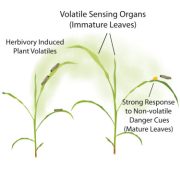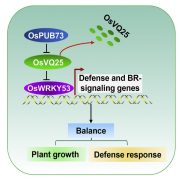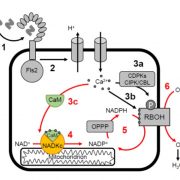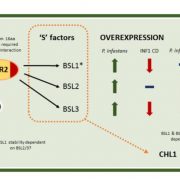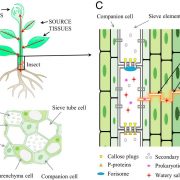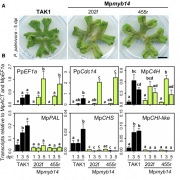Unraveling the role of tRNA thiolation in translation control for plant immunity
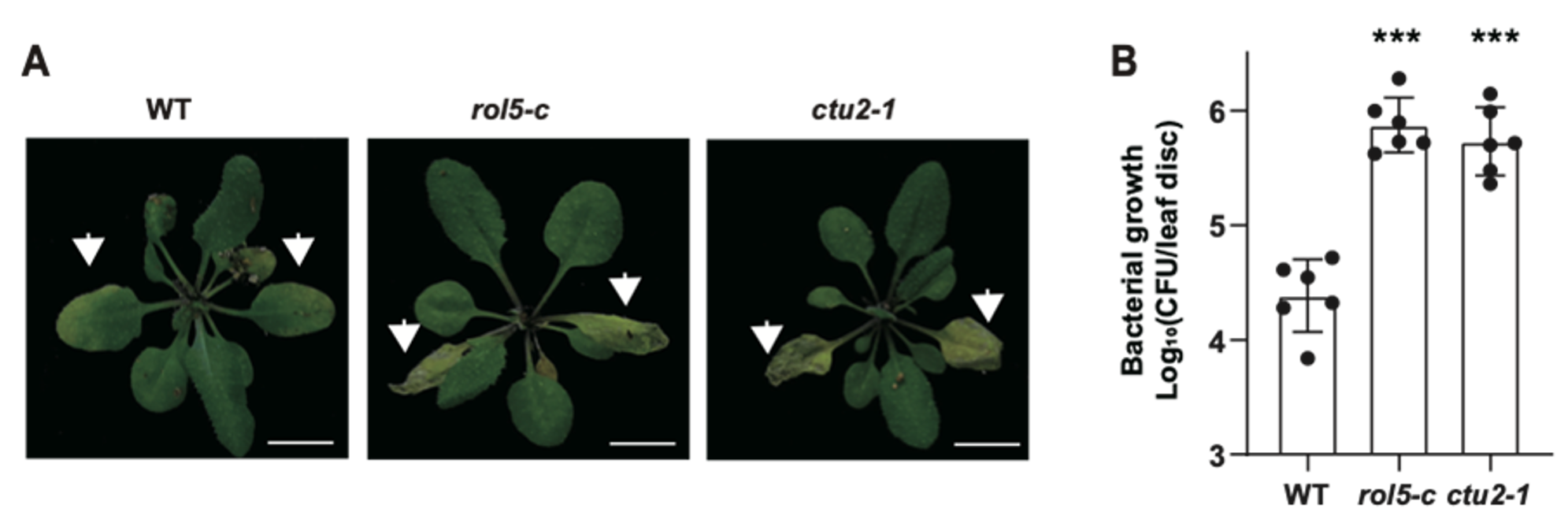 Thiolation of tRNA adds a sulfur-containing nucleotide modification at the tRNA wobble position, which is necessary for efficient translation. Zheng et al. investigated the role of tRNA thiolation in plant immunity, revealing its necessity for robust defense responses in Arabidopsis. They identified a pathogen hyper-susceptible mutant, cgb, that encodes ROL5, an enyme required for tRNA thiolation. They showed that, as in yeast, ROL5 interacts with CTU2, which also displays a hyper-susceptible phenotype when function is lost. Using these mutants and proteins, the authors elucidated the molecular mechanisms of tRNA thiolation underlying plant defense. Inhibiting tRNA thiolation causes disruptions in transcriptome and proteome dynamics, particularly impacting NPR1 translation, which highlights the regulatory function of tRNA thiolation in defense signaling pathways. Overall, this research advances our understanding of plant immunity and unveils a novel biological function of tRNA thiolation. (Summary by Yueh Cho @YuehCho1984) eLife. 10.7554/eLife.93517.
Thiolation of tRNA adds a sulfur-containing nucleotide modification at the tRNA wobble position, which is necessary for efficient translation. Zheng et al. investigated the role of tRNA thiolation in plant immunity, revealing its necessity for robust defense responses in Arabidopsis. They identified a pathogen hyper-susceptible mutant, cgb, that encodes ROL5, an enyme required for tRNA thiolation. They showed that, as in yeast, ROL5 interacts with CTU2, which also displays a hyper-susceptible phenotype when function is lost. Using these mutants and proteins, the authors elucidated the molecular mechanisms of tRNA thiolation underlying plant defense. Inhibiting tRNA thiolation causes disruptions in transcriptome and proteome dynamics, particularly impacting NPR1 translation, which highlights the regulatory function of tRNA thiolation in defense signaling pathways. Overall, this research advances our understanding of plant immunity and unveils a novel biological function of tRNA thiolation. (Summary by Yueh Cho @YuehCho1984) eLife. 10.7554/eLife.93517.


